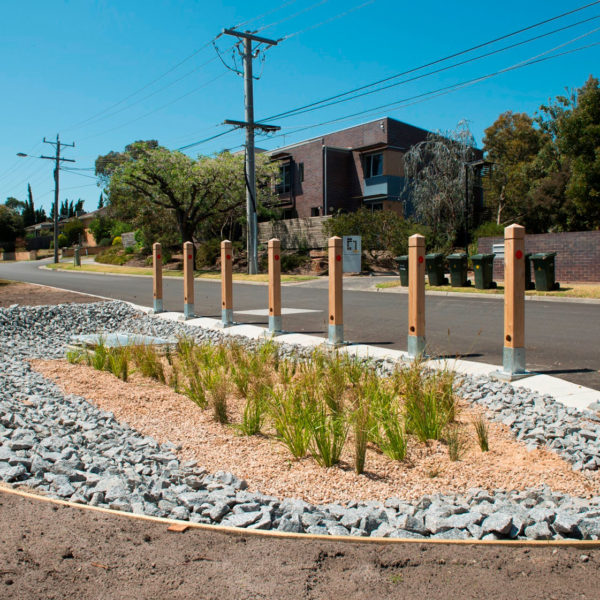Victoria Planning Provisions Amendment
Contact
Insight:
This state-wide initiative aims to enable stronger stormwater management planning provisions for urban development and clearer integrated water management planning policies
The drivers
Despite significant policy support for water sensitive urban design (WSUD) and advances in WSUD practice, Victoria’s policy and regulatory framework for stormwater management (including the Urban Stormwater Best Practice Environmental Management Guidelines, BPEM) was fragmented and incomplete. Reforms were needed to reduce dependence on individual local planning policy responses to achieve WSUD across commercial and industrial development, and to support the Victorian Government’s priorities to protect the long term health of urban waterways and maintain the resilience of the state’s towns and cities.
Previously, only residential subdivisions and apartments were required to meet the state’s stormwater management requirements (BPEM). The PPF also did not adequately reflect contemporary approaches and government policy related to IWM and planning.
In 2018, the Minister for Planning established the Improving Stormwater Management Advisory Committee to provide advice on possible improvements to stormwater management. Following extensive consultation with stakeholders and the public, the Committee identified 18 short- and long-term recommendations to address the issues surrounding IWM, including planning reforms to help improve stormwater management in Victoria.
Project stats
Location
Victoria
Dates
September 2020
Participants
Topics
Contact
The outcomes
 Cities providing ecosystem services
Cities providing ecosystem services

- Stronger IWM approach – Urban water will be planned in an integrated way to mitigate its impacts on the environment, property and public safety, and provide cooling, local habitat and amenity benefits.
 Cities as water supply catchments
Cities as water supply catchments

- Reduced impact on urban waterways and the bay – Improve the quality of stormwater runoff from most forms of urban development entering local waterways and reduce the rate of nutrient and sediment loads.
- Alternative water supplies – Promote stormwater harvesting.
 Cities comprising water sensitive communities
Cities comprising water sensitive communities

- Building knowledge – Improve water literacy in the development community and drive behaviour change through additional support and capacity building.
- Consistent policy – A clear and consistent statewide policy framework will enable the planning system to better manage the environmental issues
Interested in this solution?
We partner with small and large companies, government and industry in Australia and around the world.


Comments